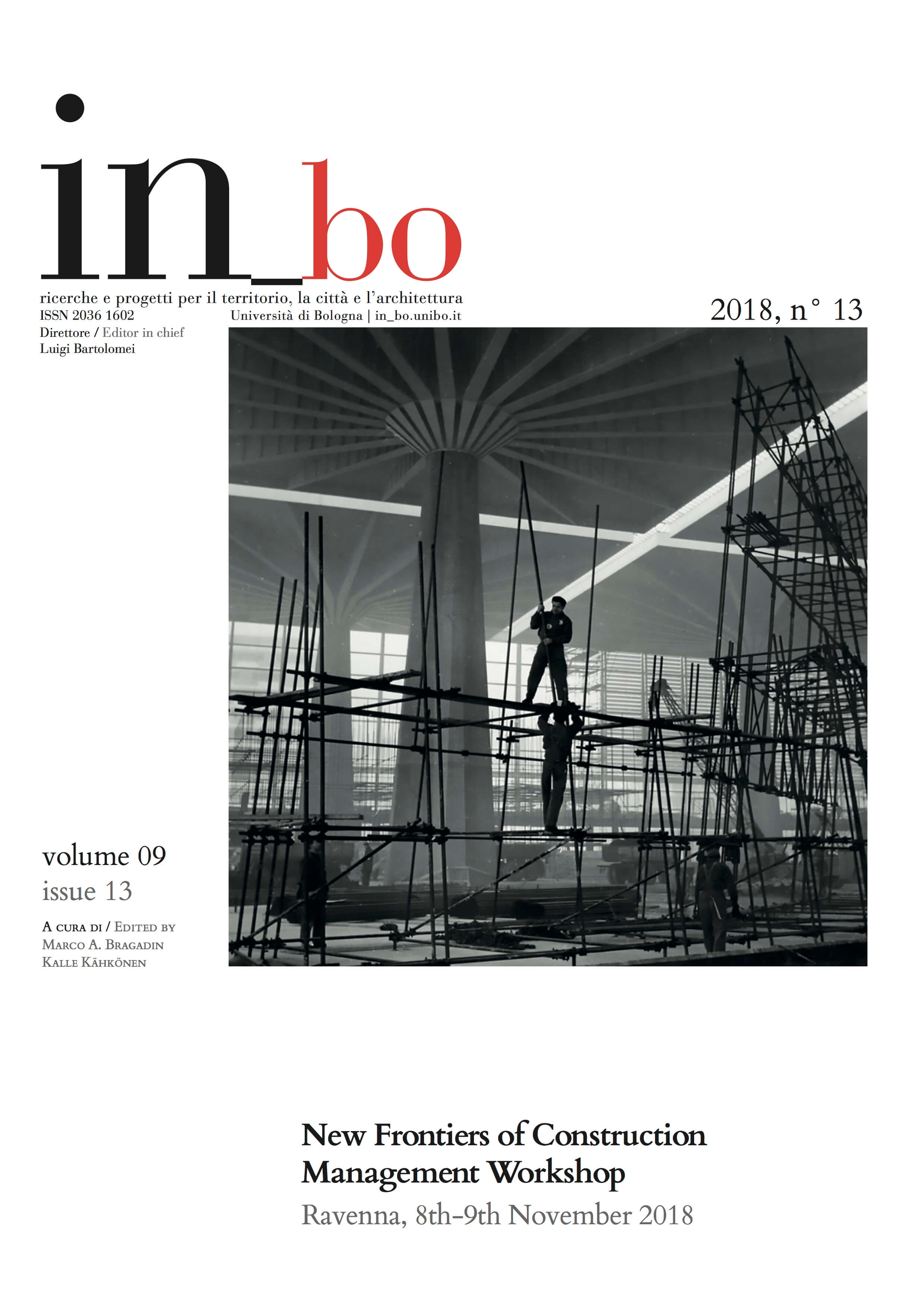A Theoretical Framework to Align Lean Construction Techniques in the 4.0 Building Industry
DOI:
https://doi.org/10.6092/issn.2036-1602/8832Keywords:
Building Process Management, Lean Construction, 4.0 Industry, BIM, Agent-Based ModelingAbstract
The big challenge of the current industrialized society is the concrete adoption of 4.0 paradigm: this consists in the interconnection of the physical object to digital computation, by a collaborative and dynamic approach (i.e. Internet of Things – IoT). The creation of this interconnected computational network allows verifying the efficiency of a production system by recursive checks, which locates lacks and misproductions into the production chain. The progressive improvement of production quality, intended as the approach of needs and performances, is the core of Lean paradigm. In the big picture, these are the fundamental elements needed in the current condition of the Building process, that has an evident delay in technology and management techniques adoption. As an answer to this need, the research is oriented towards the definition of appropriate methodologies useful to seize the opportunities that the paradigm of 4.0 industry offers to the building sector in a lean way: the goal is, on the basis of literature review and tests on techniques and tool currently used, to outline a methodology that, using the continuous exchange among physical devices, data-processing centres and vice versa, can give new spaces of application to Lean methodologies in the construction sector. Considering the complexity of the Construction Process, even for small and medium projects, it is necessary to design on collaborative digital platforms, such as Building Information Modeling - BIM: in this research, the BIM model is the starting point by means of a quite-reliable database of properties and geometries of the building. On the other hand, all the problems related to the ‘BIM Utopia’ are investigated, such as the limits of interoperability, the slow adaptation of the construction chain to the procedures of good practice and the use of digital tools, as well as market fragmentation, which is very marked in culturally ‘handcrafted’ contexts, such as the Italian one. This research describes, basing on the test conducted on the existing methodologies, a theoretical framework to align Lean Construction techniques in the 4.0 building industry. The results show how is important, to reach the goal of optimization – the core-mission of Lean and 4.0 – move beyond BIM, in the direction of implementing existent methodologies and tools with Artificial Intelligence techniques, like Agent-based simulation. In the proposed framework, this is possible thanks to the improving of BIM capabilities with Autonomous Agents. They are modeled according to BIM object feature but including also relational rules and goals. So, after the definition of needs and requirements of design and construction process they tend, after ever modification occurred in the design environment, to create a new state of balance, defined by reciprocal satisfaction of boundary conditions: in summary, the Agents simulation allow to define, after every project modification, the satisficing balance condition respecting to all constraint that characterizes the project. This could properly support the designers in problem-solving, manage the huge mass of data that characterize the building industry and preserve the quality of the architectural design.Downloads
Published
How to Cite
Issue
Section
License
Copyright (c) 2018 Antonio Fioravanti, Gabriele Novembri, Francesco Livio Rossini
Copyrights and publishing rights of all the texts on this journal belong to the respective authors without restrictions.
This journal is licensed under a Creative Commons Attribution-NonCommercial 4.0 International License (full legal code).
See also our Open Access Policy.
Metadata
All the metadata of the published material is released in the public domain and may be used by anyone free of charge. This includes references.
Metadata — including references — may be re-used in any medium without prior permission for both not-for-profit and for-profit purposes. We kindly ask users to provide a link to the original metadata record.







